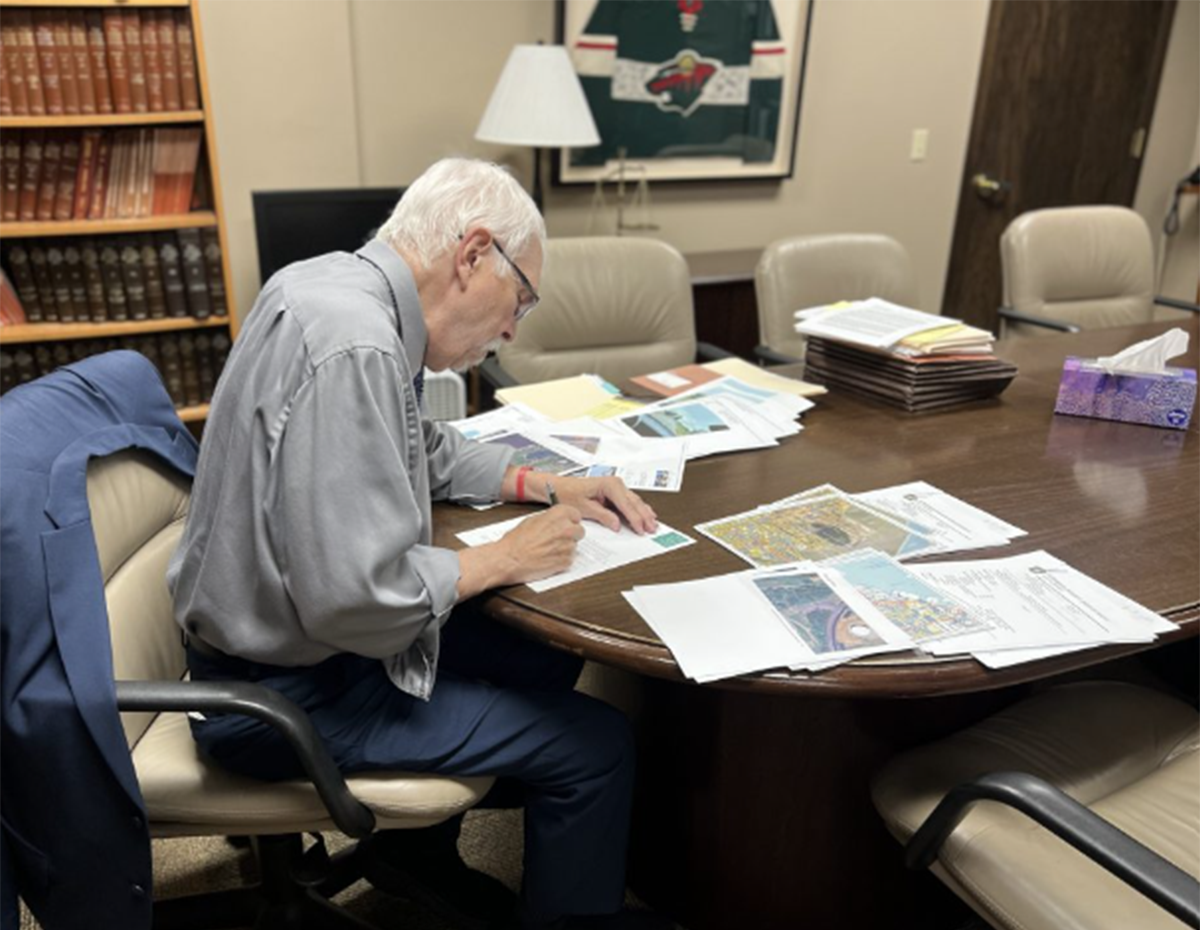Members of the UW-Eau Claire campus shared mixed reactions to President Bush’s speech Monday night, in which he called for a new United Nations resolution to deal with Iraq and reiterated his support of a military invasion of the country if needed.
Bush requested the U.N. Security Council to create a resolution demanding Iraq’s leader, Saddam Hussein, to destroy all weapons of mass destruction, allow weapons inspectors unrestricted access to all sites and allow witnesses to the human rights violations of the Iraqi government to talk outside of the country.
He also told the nation that Iraq has connections with terrorist groups, including the al-Qaeda terrorist network that attacked the United States on Sept. 11, 2001.
“An alliance with terrorists could allow the Iraqi regime to attack America without leaving any finger prints,” Bush said.
Geoffrey Peterson, assistant professor of political science, said the president’s 29-minute speech had nothing surprising in it.
“He backed off enough to pacify the international community, but he also kept his party happy,” Peterson said.
The speech implied a dramatic shift in American policy, Peterson said. It means that America is the police for the rest of the world and infers that the nation will be responsible for eliminating men like Hussein into the future.
Sophomore Rachel Boaz said she does not want the United States to attack Iraq and thinks the war talk is a political maneuver to rally support for the president.
Boaz and others who think the possible war on Iraq is politically based is “Bush’s greatest fear,” Peterson said.
Senior Andy Oettinger said Bush is trying to keep the public focused on the potential war, and the president is using it to deprioritize the nation’s economic issues.
An attack on Iraq is unwarranted, Oettinger said, especially with some U.S. intelligence officials saying it would do more harm than necessary and provoke Iraq to use force.
Peterson and Boaz said Bush’s speech raised some concerns about what information the president isn’t sharing with the public.
“[The] president has access to a lot of information we don’t,” Peterson said, “and he is asking us to trust him without the information needed to make an educated decision.”
Boaz said the idea of a possible attack is “just blood for oil.”
She doesn’t understand how the United States can have weapons of mass destruction and other countries should fight with sticks and stones, she said.
Eleven years ago after the conclusion of the Persian Gulf War, Bush said in his speech, conditions on Iraq were set and Hussein has violated them all.
Senior Ben Hack agrees with Bush about the violation of the post-Gulf War stipulations.
“In essence, he’s broken the treaty that ended the Persian Gulf War,” Hack said of Hussein. “In that way, the war is still going.”
The post-war guidelines called for the destruction of all of Iraq’s weapons of mass destruction, a cessation of all development of such weapons and stopping all support for terrorist organizations.
“This created an 11-year history of defiance, deception and bad faith,” Bush said Monday night.
The reason for attacking Iraq, he said, is that it contains all of the greatest threats to peace in one place. Bush said Hussein has biological, chemical and possibly even nuclear weapons.
“Iraq’s weapons of mass destruction are controlled by a murderous tyrant,” Bush said during the speech. “Saddam Hussein is a homicidal dictator who is addicted to weapons of mass destruction.”
Hack agreed that Hussein poses a risk too great for the United States to overlook.
“The biggest point made during the speech was that war is not completely imminent, Hack said. “Iraq still has a chance to redeem itself.”






